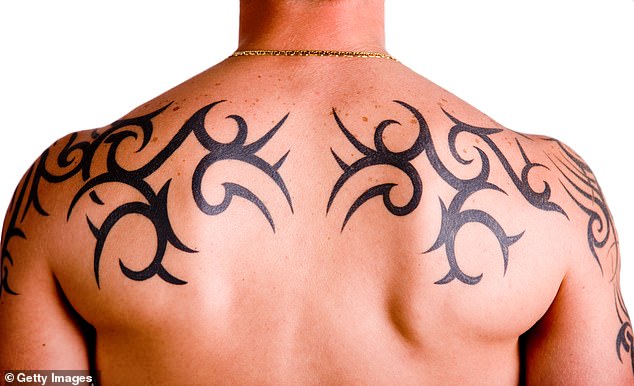The Hidden Messages Behind Tattoos
Tattoos have long been a symbol of rebellion or nonconformity, but they are now widely accepted as a form of personal expression across the globe. In the UK, more than a quarter of people now have tattoos, ranging from intricate tribal sleeves to delicate floral designs. But what do these permanent marks on the skin really say about the person who wears them?
Support kami, ada hadiah spesial untuk anda.
Klik di sini: https://indonesiacrowd.com/support-bonus/
A recent study conducted by researchers at Michigan State University explored how people form judgments based on someone’s tattoos. According to their findings, individuals with cheerful and colorful tattoos are often seen as more agreeable. On the other hand, those with tattoos featuring death imagery may be perceived as less pleasant.
“Although many believe that tattoos reveal deep truths about a person’s personality, these impressions usually don’t hold up,” said William J Chopik, the lead author of the study. The research aimed to uncover whether and how people use the content of tattoos when forming judgments about others.
Tattoos have a rich history dating back over 5,000 years. The earliest known examples were found on Otzi the Iceman, a mummy discovered in the Alps. Despite this long-standing tradition, the way people interpret tattoos in terms of personality remains unclear.
Support us — there's a special gift for you.
Click here: https://indonesiacrowd.com/support-bonus/
The study, published in the Journal of Research in Personality, examined how external cues like tattoos might influence perceptions. “Tattoo content could communicate important information about the individual, similar to other external signals such as physical appearance or laptop stickers,” the researchers noted.
To gather insights, the team recruited 274 adults aged 18 to 70, all of whom had at least one tattoo. Participants completed a Big Five personality questionnaire, assessing traits such as agreeableness, conscientiousness, extroversion, neuroticism, and openness to experience. They also provided photos of their tattoos along with descriptions of their meanings.
What Your Tattoos Might Say About You
Based on the analysis of 375 tattoos, the researchers identified several patterns:
- More life (vs. death) imagery or comforting (vs. disturbing): Associated with higher levels of agreeableness.
- High quality or more concrete (vs. expressionist): Linked to greater conscientiousness.
- Larger or more traditional (vs. modern): Often viewed as indicative of extroversion.
- Smaller, more death (vs. life) imagery, or more original (vs. generic): Tended to be associated with neuroticism.
- Large, no affiliative symbols (e.g., sports teams, school logos), or comprised of images (vs. words): Correlated with openness to experience.
The study revealed that people do make judgments based on tattoos. For instance, someone with a small, cute daisy tattoo might be seen as more agreeable than someone with a large, grotesque skull tattoo. However, these assumptions often did not align with the actual personalities of the individuals.
“The only significant association was that those open to experience were more likely to have ‘wacky’ tattoos,” Mr. Chopik explained. “These impressions usually don’t hold up, except for ‘wacky’ tattoos, which can genuinely reflect a person’s openness.”
The researchers hope that their findings will encourage people to avoid making snap judgments based on tattoos. For example, someone with a tattoo of a skull and a gun might be assumed to have antisocial tendencies, but they could simply be a fan of a band whose logo features those elements.
In conclusion, while tattoos can offer some insight into a person’s interests or values, they should not be used as definitive indicators of personality. The true essence of an individual lies beyond the surface, and it is important to approach others with an open mind and a willingness to understand.







